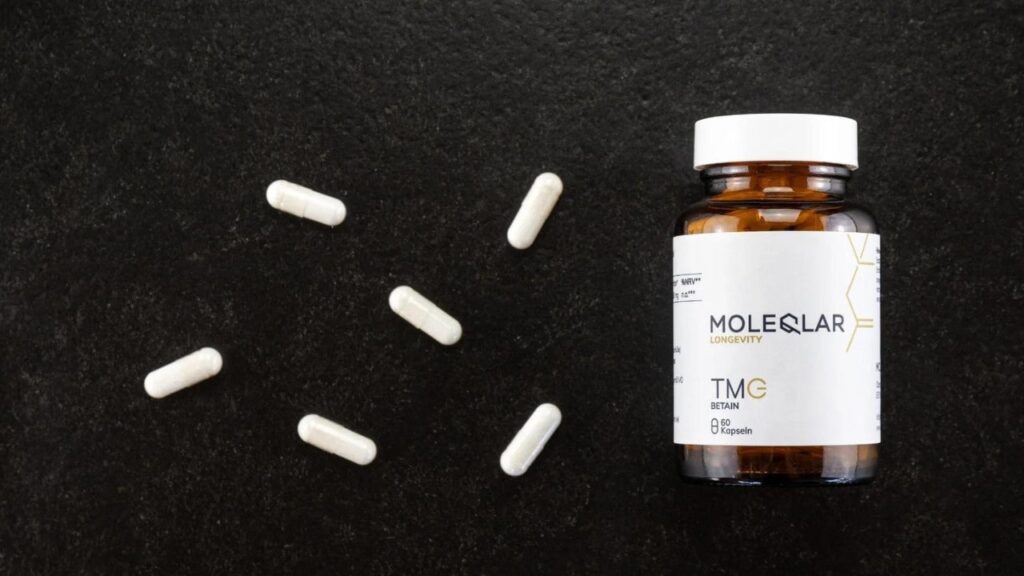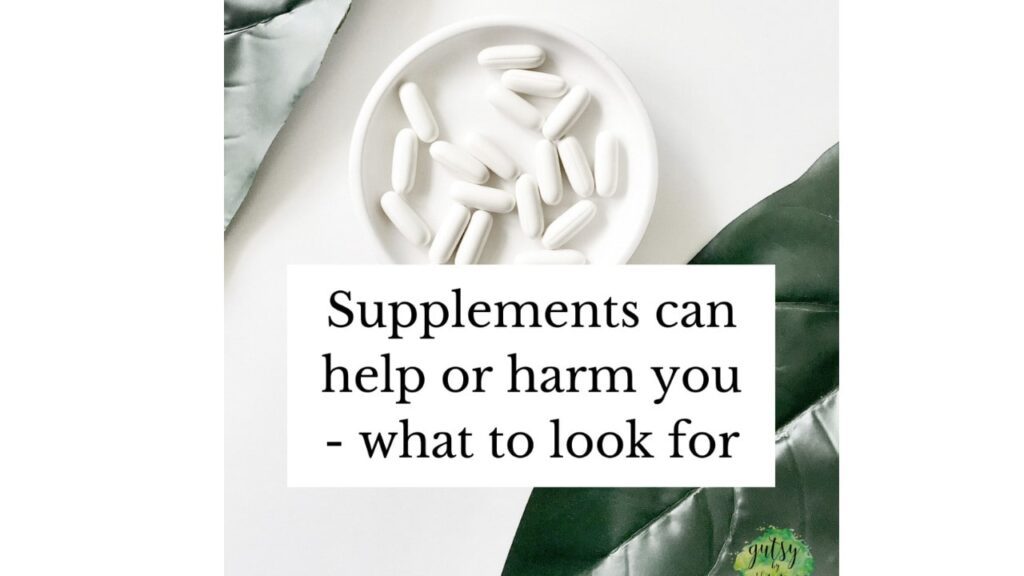We’ve all been there. You pick up a trendy supplement promising glowing skin, endless energy, or rock-solid immunity. You take it religiously, eagerly awaiting the magic transformation. But weeks turn into months, and…crickets. Is the supplement a dud? Or are you just being impatient?

The truth is, that supplements aren’t magic pills. They take time to work, and how long that time is depends on a whole bunch of factors. Fear not, curious supplementer! This article will shed light on the mystery of supplement timelines and answer all your burning questions:
- How long does it take to see results? (Spoiler alert: It’s not always instant gratification)
- Fast or slow? (Water vs. fat-soluble vitamins and what it means for you)
- Are you getting the most out of it? (Maximizing absorption for better results)
- Should you give up already? (Knowing when to stick with it or switch it up)
- Doc, is this okay? (Why consulting your doctor is always a good idea)
By the end of this article, you’ll be a supplement guru, ready to navigate the world of vitamins, minerals, and everything in between with confidence!
How long should I wait to see the results of taking a supplement?
So you’ve dived headfirst into the world of supplements, ready to reap the benefits everyone’s talking about. But as the days tick by, that promised energy boost or glowing skin seems frustratingly out of reach. Should you be worried? Is the supplement a dud?
Hold your horses! Unlike a candy bar delivering a sugar rush, supplements take time to work their magic. Here’s the thing: they have to be absorbed by your body and then get to work on whatever they’re supposed to do. This process can be frustratingly slow, depending on a few key factors:
The Type of Supplement
Water-soluble vitamins (think C and B complex) get absorbed quicker, so you might feel a difference within a few weeks. Fat-soluble vitamins (like A, D, E, and K) get stored in your body, so it can take longer (weeks to months) to see their effects.
Your Deficiency Level
If you’re starting from a place of severe deficiency, you might notice changes faster as your body gets back on track. Underlying health conditions or a not-so-great diet can slow down absorption.
Patience is key! Give your supplement a fair shot, usually 2-3 months, before throwing in the towel. If you’re still not feeling anything and you’re concerned, talk to your doctor. They can help you assess your needs and determine if the supplement is the right fit for you.
Do some supplements work faster than others?
Supplement Speed Demons: Do Some Work Faster Than Others!
You’ve got your shiny new bottle of supplements, ready to tackle whatever ails you. But a nagging question pops into your head: are some supplements like Usain Bolt, leaving others in the dust?
Well, buckle up because the answer’s not a simple yes or no.
Water vs. Fat
Imagine two runners on a track. Water-soluble vitamins like B complex and C are the Usain Bolts. They dissolve easily in water and zip into your bloodstream quickly, so you might feel a difference in a couple of weeks (think more energy or a brighter mood). Fat-soluble vitamins like A, D, E, and K are more like marathoners. They need fat to be absorbed and stored in your body, so it takes longer (weeks to months) to see their effects.
Your Starting Point

say you’re severely deficient in vitamin B12. A B12 supplement might give you a noticeable energy boost within weeks as your body fills its reserves. On the other hand, if you’re just looking for a general top-up of a vitamin you’re not lacking in, the effects might be more subtle and take longer.
So, what does this mean for you?
Don’t expect instant gratification from most supplements. Give them some time, especially the fat-soluble ones. If you’re concerned about the speed or effectiveness, talk to your doctor. They can help you figure out if the supplement is the right fit for you and your needs.
What factors can affect how quickly a supplement works?
You’re popping your daily dose of supplements religiously, convinced they’ll be your ticket to a healthier you. But weeks turn into months, and you feel…well, the same. What gives? Why isn’t your bottle of magic working its wonders?
The truth is, a bunch of factors can influence how quickly a supplement kicks in. Here’s the inside scoop on the secret saboteurs of supplement speed:
The Delivery System
Think of your supplement as a message in a bottle. Water-soluble vitamins are like clear bottles, dissolving easily and zipping into your bloodstream. Fat-soluble vitamins (A, D, E, and K) are more like messages in thick, opaque bottles. They need fat to be absorbed, so taking them with a meal can speed things up.
Your Body’s a Busy Place
Imagine your body as a bustling city. If you’re deficient in a nutrient (vitamin or mineral), it’s like a missing traffic light. Supplements help restore order, but it takes time for the system to adjust. Underlying health conditions can also create roadblocks, slowing down absorption.
The Starting Line
How quickly you see results depends on where you’re starting from. If you’re severely deficient in something, a supplement can work wonders quickly. But if you’re just topping up already healthy levels, the effects might be more subtle and take longer.
The Competition
Imagine multiple deliveries trying to reach the same destination. Certain medications or other supplements can compete with your supplement for absorption, slowing things down.
Are there any signs that a supplement is working?
You’ve been taking your supplements faithfully, but is it all just empty capsules and wishful thinking? Fear not, fellow supplement adventurer! There are ways to play detective and see if those pills are working their magic.
Here are some clues to watch out for:
The Feel-Good Factor:
Energy Boost
If you were constantly hitting the snooze button, and now you’re waking up feeling refreshed and ready to tackle the day, that B complex supplement might be your new best friend.
Brainpower Uptick
Feeling sharper, more focused, and like your brain is finally firing on all cylinders? Some supplements, like omega-3 fatty acids, may be giving your cognitive function a boost.
Better Sleep
Are you finally drifting off to dreamland and waking up feeling truly rested? Melatonin or magnesium supplements could be the sleep saviors you’ve been searching for.
The Body’s Signals:
- Goodbye, Dry Skin: If your skin’s been looking like a reptile’s handbag, and now it’s glowing and hydrated, that fish oil supplement might be working its wonders.

- Stronger Strands: Brittle hair used to be your signature look, but now it’s growing stronger and healthier. Biotin or a good multivitamin could be the secret weapon.
- Farewell, Fatigue: Constant aches and pains got you down? But now you feel more energized and ready to move. Anti-inflammatory supplements like turmeric might be the culprit (in a good way!).
These are just some general signs. The effects will vary depending on the supplement you’re taking and what you’re hoping to achieve.
No Change? Don’t Panic (Yet):
Just because you don’t feel like a superhero overnight doesn’t mean the supplement’s a dud. Here’s the thing: some supplements, especially those addressing deficiencies, work behind the scenes to improve your overall health. You might not feel an immediate difference, but your body is thanking you.
How long should I take a supplement before giving up on it?
Here’s the thing: supplements aren’t like instant coffee – they don’t deliver a magic bullet fix. But that doesn’t mean you should resign yourself to a lifetime of feeling “meh.” Let’s explore the factors that determine how long to give your supplement a shot:
Generally: Most supplements take 2-3 months to show noticeable effects. Think of it like training for a marathon – it takes time and consistency to see results.
The Fast Track: Water-soluble vitamins (C and B complex) might be noticeable a bit sooner because they get absorbed quicker.
The Slow Burn: Fat-soluble vitamins (A, D, E, and K) take longer (weeks to months) because they need to be stored in your body before they can work their magic.
Can supplements be dangerous if I take them for too long?
We all want to feel our best, and supplements seem like an easy way to boost our health. But what if all those extra vitamins and minerals could hurt us? Can you overdo a good thing?
But just like with that delicious candy, you can’t resist, too much of a good thing can be bad. Here’s what you need to keep in mind:
The Trouble with Too Much:
Vitamin Overload
Our bodies need vitamins and minerals, but they only need so much. Taking megadoses of certain vitamins, especially fat-soluble ones (A, D, E, and K) that get stored in your body, can lead to toxicity. Think of it like overloading your car’s gas tank – it won’t make it run better, and it could cause problems.
Hidden Dangers
Think of it like mixing the wrong ingredients in a recipe – it might not taste good, and it could even make you sick.
What should I do if I don’t see any results from taking a supplement?
So you’ve been faithfully popping your supplements, religiously following the instructions, but that promised energy boost or glowing skin seems like a distant dream. Frustration city, right? Don’t despair, supplement soldier! Here’s a battle plan to get you back on track:
Step 1: Assess the Timeline
- Patience is Key: Remember, most supplements take time to work, especially the fat-soluble ones (A, D, E, and K). Give them a fair shot, typically 2-3 months, before throwing in the towel.
Step 2: Consider the Cause:
- Wrong Fit: Maybe the supplement isn’t addressing your specific needs. Were you aiming for more energy, but took a hair, skin, and nails formula instead?
Step 3: Check Your Technique
- Swallowing Savvy: Are you taking the supplement with food when it needs fat for absorption? Empty stomach or with a meal – make sure you’re following the directions for optimal results.
Step 4: Listen to Your Body
- Side Effect Sleuth: Are you experiencing headaches, stomachaches, or weird rashes? These could be signs the supplement isn’t agreeing with you.
Step 5: Consult Your Doctor:
- They’re the Experts: They can help you assess your needs, determine if the supplement is right for you, and suggest alternative solutions or check for underlying health conditions affecting absorption.
Bonus Tip: Maybe you’re getting most of the nutrients you need from your diet already. Supplements are great for filling gaps, but a balanced diet is key!
Is it better to get my nutrients from food instead of supplements?
We all want to feel our best, and both food and supplements promise to deliver a healthy body and a happy you. But with so many options out there, it’s natural to wonder: should you be popping pills or piling on the plates?
Well, buckle up because it’s not a simple “either/or” situation. Here’s the lowdown on the food versus supplement battle:
Team Food: The Natural Powerhouse
Food comes with a whole bunch of good stuff besides just vitamins and minerals. Think fiber, antioxidants, and other goodies that work together to keep your body healthy. It’s like getting a whole symphony orchestra instead of just a single instrument!
Your body is a whiz at pulling nutrients out of food. Think of it like a custom-made key perfectly fitting a lock. Supplements might not always be absorbed as efficiently.
Let’s face it, a juicy steak or a bowl of berries is way more appealing than a handful of pills. Food can be a delightful way to nourish yourself.
Team Supplement: The Targeted Warrior

Maybe you’re a picky eater or have dietary restrictions. Supplements can be a lifesaver, ensuring you get the specific vitamins or minerals you might be lacking.
We all get busy. Supplements offer a quick and easy way to ensure you’re getting your daily dose of essential nutrients, especially if you struggle to fit in a balanced diet every day.
Certain health conditions or life stages might require extra nutritional support. Supplements can be a great way to address those specific needs.
The Winner? Teamwork Makes the Dream Work!
In the battle for optimal health, the real winner is you! The best approach is often a combination of both food and supplements. Here’s how to create a dream team:
Focus on a Balanced Diet: Make fruits, vegetables, whole grains, and lean proteins the foundation of your meals. This gives your body the full spectrum of nutrients it craves.
Supplement Strategically: Talk to your doctor about any specific deficiencies you might have and if supplements can help bridge the gap.
Quality Counts: When it comes to supplements, choose high-quality brands and avoid exceeding recommended dosages.
Should I talk to my doctor before starting a new supplement?
So you’re browsing the aisles of the vitamin store, overwhelmed by a rainbow of bottles promising everything from eternal youth to superhuman energy. You grab a bottle that seems perfect, ready to add it to your daily routine. But wait! Before you swallow that first capsule, here’s why it’s a wise move to chat with your doctor first.
Surprise Interactions
Supplements can be like chatty neighbors – they love to interact with other medications you might be taking. This can be a good thing or a bad thing. Your doctor can check for any potential conflicts to avoid unwanted side effects.
Underlying Issues
Maybe you’re feeling fatigued and think a B12 boost will do the trick. But what if there’s an underlying health condition causing your tiredness? Your doctor can diagnose the root cause and recommend the best course of action, which might not involve a supplement at all.
The Right Fit
Not all supplements are created equal. Your doctor can help you choose the right one for your specific needs and health goals. Think of them as your personal supplement matchmaker!
Dosage Dilemmas
Supplement labels can be confusing. How much is too much? Too little? Your doctor can advise you on the appropriate dosage to ensure you’re getting the benefits without any risks.
Are You Deficient?
Sometimes, you might not even need a supplement! Your doctor can check your vitamin and mineral levels to see if you’re truly deficient before you start adding anything extra.
A quick chat with your doctor can ensure you’re taking the right supplement, in the right amount, and for the right reasons. It’s a simple step that can save you time, money, and potential health woes down the road.








